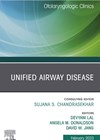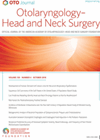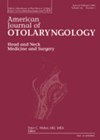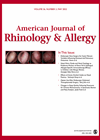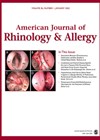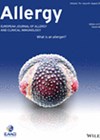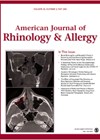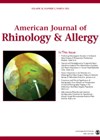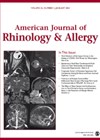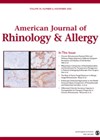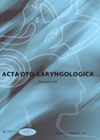
Journal Reviews
How best can we manage Samter’s Triad/AERD?
The classic ‘Samter’s Triad’ of asthma, chronic rhinosinusitis with nasal polyposis (CRSwNP), and aspirin sensitivity is now referred to as aspirin-exacerbated respiratory disease (AERD) or non-steroidal anti-inflammatory-exacerbated respiratory disease. We often come across in our rhinology setting, patients with recalcitrant...
REVISIONS acronym for preoperative imaging review in revision endoscopic sinus surgery
The authors have developed an acronym to aid evaluation of preoperative sinus CT imaging in revision endoscopic sinus surgery (RESS). To determine which pertinent aspects of anatomy to include, a systemic review of studies that investigated anatomic contributions to persistent...
Does endoscopic sinus surgery for chronic rhinosinusitis improve COPD?
Chronic rhinosinusitis (CRS) can be associated with asthma, with a reported frequency of asthma in patients with CRS of up to 44%. COPD is another lung condition that can be associated with CRS. This longitudinal study reviewed the nasal and...
Does sleep quality improve when we adequately treat CRS?
In addition to the well-known symptoms associated with chronic rhinosinusitis (CRS), patients often suffer with poor sleep quality which is also detrimental to health and wellbeing. This meta-analysis looked at 35 papers reporting outcomes for CRS patients post surgery on...
Age is not an issue in sinus surgery
We have an increasingly aged population, and hence older and older patients are presenting with sinonasal issues and the potential need for endoscopic sinus surgery (ESS). The authors sought to identify if older patients (age >70) have more complications post...
A new era in the treatment of recalcitrant nasal polyps?
Chronic rhinosinusitis with nasal polyps (CRSwNP) can be difficult to treat effectively in patients with aggressive or recalcitrant disease. Omalizumab (Xolair) is a monoclonal anti-IgE antibody with proven benefits for patients with moderate/severe asthma and CRSwNP, but this study looks...
Biologicals for severe chronic rhinosinusitis with nasal polyps. Any use?
Recent advances and knowledge of inflammatory endotypes of chronic rhinosinusitis with nasal polyps (CRSwNP) led to introduction of biological agents such as monoclonal antibodies targeting IgE (omalizumab) and Interleukins (ILs) such as IL4R alpha (dupilumab) and IL5. The European Academy...
CRS vs. migraine: which is the culprit in most headaches?
‘Sinus headache’ is a common diagnosis according to patients and primary care physicians, but relatively infrequent in the eyes of otolaryngologists. This study examines 104 patients with a primary headache syndrome (PHS) and 130 patients with CRS, looking at SNOT-22...
Can we predict how much benefit patients will get from ESS with a novel monoclonal antibody
Mepolizumab (Nucala) is a humanised IgG1 monoclonal antibody that acts as an IL-5 antagonist. It has been shown to be highly effective in treating severe asthma. It is hypothesised that it will be effective for patients with recalcitrant CRSwNP. This...
Simple preoperative tests predicting outcomes for ESS patients?
We are all familiar with patients suffering extensive nasal polyps who relapse all to soon after careful and thorough endoscopic sinus surgery (ESS). This paper looks to answer whether we can predict which patients will do well, and which less...
Can we avoid FESS in patients with true isolated odontogenic sinusitis?
This is a useful study looking at how best to manage patients with odontogenic sinusitis and if FESS can be safely avoided. The authors treated patients by removing the odontogenic cause of the rhinosinusitis by extracting the offending tooth and...
Earlier intervention to correct anosmia?
This is an interesting study aimed to determine the timing for successful surgical intervention in improving the sense of smell in patients with chronic rhinosinusitis with nasal polyps (CRSwNP). A total of 86 CRSwNP patients with loss of smell and...

